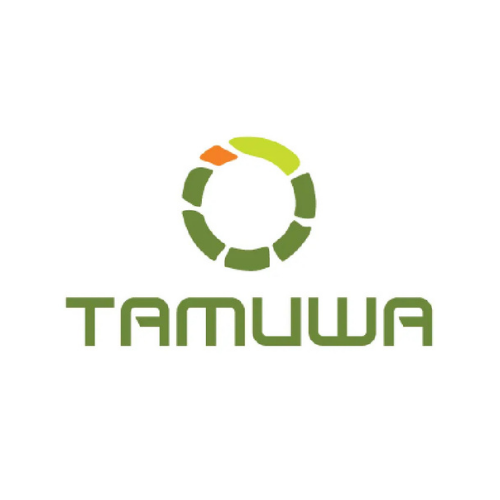
Log4j
Apache Log4j is an open-source, Java-based logging utility used by developers to record application events, errors, and operational data. It is a popular tool for debugging, system monitoring, and conducting audits across myriad Java platforms.
In the Hedera ecosystem, the log4j2-hedera repository offers a specific integration for Log4j 2.x and provides a custom appender that enables recording of logged events directly to the Hedera network via the Hedera Consensus Service (HCS). This allows applications to interact with HCS to submit their log entries, effectively writing them onto Hedera's distributed ledger.
The primary benefits of this integration include ensuring that logged data is distributed, secure, and transparent providing provable security. Furthermore, it guarantees the integrity and immutability of the recorded log information, as each entry is validated by Hedera’s consensus mechanism. This specialized appender provides a robust solution for applications requiring verifiable, tamper-resistant logging. This use case is distinct from how Hedera's core network software and provides additional verification.
Project Information
Related Projects

Onchain Custodian is a centralized exchange headquartered in Singapore. It specializes in providing secure and compliant digital asset custody services tailored primarily for institutional clients including entities such as investment funds, family offices, and other financial institutions managing significant digital asset portfolios.
The core of Onchain Custodian's offering is a global, standardized, and resilient service focused on security, convenience, and regulatory adherence. Their solutions incorporate multi-signature wallets and advanced security protocols.
Onchain Custodian has previously partnered with firms such as IBM, Merkle Science and Accuity to enhance its compliance and transaction monitoring capabilities. As well as platforms including Apifiny and exchanges such as KuCoin and CyberBank. Additionally, it has provided custodian services for tokenization platforms such as Polymath.
It has also collaborated with PixelPlex to secure wealth management tools, CACHE for custody services related to gold-backed tokens, and secured partnerships with multiple blockchain ecosystems including Hedera, Neo, Ontology, and Zilliqa.

RAK DAO (Ras Al Khaimah Digital Assets Oasis) is a government-supported free zone in the United Arab Emirates, launched in 2023. It is the world's first and only free zone exclusively dedicated to digital and virtual asset companies. The initiative is designed to create a vibrant ecosystem for Web3, blockchain, AI, and other emerging technologies, positioning Ras Al Khaimah as a global hub for innovation.
RAK DAO provides a comprehensive suite of services and infrastructure to support the growth of digital asset companies. This includes a robust and transparent legal framework, a variety of licensing options (including for freelancers and digital nomads), and access to a network of partners, VCs, and academic institutions. The free zone offers a range of facilities, from co-working spaces to dedicated offices, and provides professional services to assist with everything from company setup to ongoing operations.
The Hedera Foundation, which fuels the growth of the Hedera ecosystem, is a key partner of RAK DAO. This strategic alliance provides RAK DAO members with direct access to the Hedera network, including grant programs and technical support.

Clout.art is a creator economy platform, founded in 2021. Its mission is to bridge the gap between Web2 social media and the Web3 world through the creation of a sustainable and transparent ecosystem that empowers content creators to monetise their most valuable social media content as unique digital assets.
The platform's core service is an NFT minting and marketplace solution. It allows creators to take their most successful social media posts, such as those from Instagram, and transform them into non-fungible tokens (NFTs). This provides a direct way for creators to capitalize on their existing digital footprint and for fans to own a piece of their favorite creator's content. The Clout.art ecosystem also includes a social token, $SWAY, which enables fans to stake with their favorite creators in "creator pools." When a creator sells an NFT, a portion of the proceeds is distributed to those who have staked in their pool, creating a mutually beneficial relationship.

Tamuwa, founded in 2015, is a Kenyan company at the forefront of the renewable energy sector in Africa. Its primary focus is on converting agricultural waste, specifically sugarcane bagasse, into a sustainable and affordable energy source. By producing high-density briquettes and pellets, Tamuwa provides a clean alternative to traditional fuels like firewood and charcoal, addressing issues of deforestation and promoting a circular economy.
The company's core service is the production and distribution of these biomass briquettes, which have a high calorific value and low moisture content, making them an efficient fuel source for industrial and domestic use. Tamuwa has also developed the CYNK platform, a digital end-to-end solution for the measurement, reporting, verification, and trading of high-quality voluntary emissions reductions (VERs). This platform is designed to bring trust and transparency to the carbon offset market, enabling local communities and projects to gain greater financial benefit from their environmental initiatives.
The CYNK platform is built on the Hedera network, leveraging its high-throughput, low-cost, and energy-efficient distributed ledger technology. This integration allows Tamuwa to digitize and tokenize verified emissions reductions, creating a secure and transparent marketplace for carbon credits.
